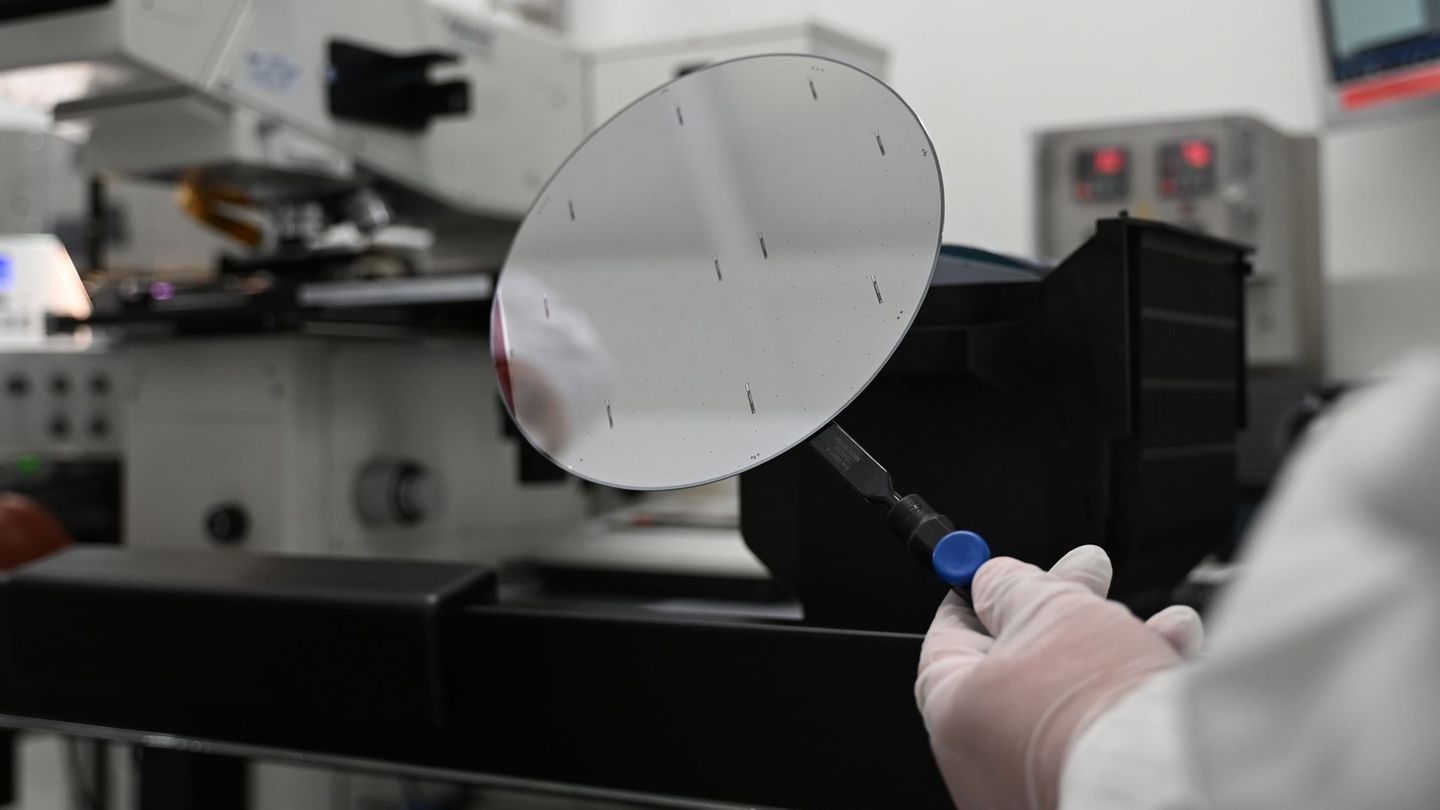Auto industry
Trouble over Nexperia – new chip crisis could stop car factories
Copy the current link
Add to watchlist
Delivery problems at chip manufacturer Nexperia could stall production at German carmakers. The industry association warns of possible production stops in the near future.
German car manufacturers may be facing a new semiconductor crisis. Because of problems at the Dutch chip manufacturer Nexperia, production stops could soon be imminent, warns the Association of the Automotive Industry (VDA). “The situation could lead to significant production restrictions and possibly even production stops in the near future,” warned VDA President Hildegard Müller.
Nexperia is experiencing delivery problems after the Dutch government took control of the company, which was previously run by a Chinese parent company. China then stopped exports of Nexperia products such as chips for the auto industry. According to the VDA, the company then informed automobile manufacturers and suppliers that it could no longer fully guarantee supplies of its chips.
Netherlands is trying to find a solution
The Dutch government is trying to reach an agreement with China in the conflict over the chip manufacturer. Acting Economics Minister Vincent Karremans said he spoke on the phone with his Chinese counterpart Wang Wentao today. “We discussed further steps to find a solution that is in the interests of Nexperia, the European and Chinese economies,” explained Karremans.
Nexperia is a subsidiary of the Chinese company Wingtech and has its European headquarters in Nijmegen.
Karremans had recently seized control of the company using a rarely used law. This is intended to prevent the migration of technological knowledge and intellectual property to China.
Pressure from the USA on The Hague
The minister had the Chinese owner of the company withdrawn control by order of the Amsterdam Economic Court. He previously stated that the US-China trade dispute had nothing to do with the Nexperia conflict. But court documents show that the US pressured The Hague to take the step.
According to the VDA, Nexperia is an important supplier whose semiconductors are often used in electronic control units in vehicle electronic systems. “The VDA has since been in contact with the affected companies, industry, the federal government and the EU Commission. The current focus should be on finding quick and pragmatic solutions,” said VDA boss Müller. Nexperia produces in Hamburg, among other places, but is reportedly dependent on supplies from China, which have now stopped.
According to the companies, the effects in the car factories have so far been limited. “Our production is currently unaffected,” said a VW spokesman. Even an interruption in Wolfsburg planned for Friday has nothing to do with a chip shortage. However, VW is in close contact with everyone involved in order to be able to identify risks early and react. Nexperia does not deliver directly to VW, but to suppliers who produce components for VW.
BMW also made a similar statement. “Production in our factories continues to proceed according to plan,” said a spokesman. “We are in close contact with our suppliers and continually assess the situation in order to identify potential supply risks at an early stage and take appropriate measures.”
Suppliers form a task force
The first suppliers such as ZF have already set up task forces to deal with the situation. ZF said they are working together with customers and suppliers to keep supply chains stable and to examine alternative suppliers. When asked, Bosch explained: “Like other Nexperia customers, the current situation presents us with major challenges. We are therefore hoping for a quick solution between those involved that will help ease the current bottleneck situation.”
During the Corona pandemic, a chip shortage had already led to massive failures in the auto industry, which affected the entire industry at the time. At that time, several companies had announced that they would increase their stocks of chips so that they would not have to stop production immediately in the event of a shortage.
dpa
Source: Stern




